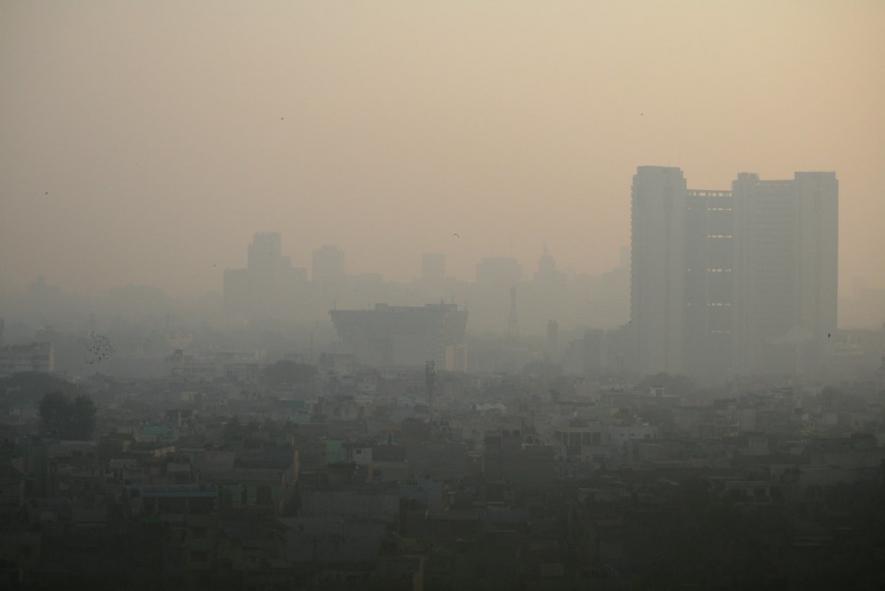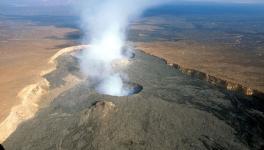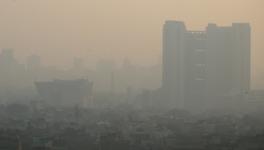Air Pollution can Cause Lung Cancer Without Affecting DNA

Image Courtesy: Flickr
Air pollution causes lung diseases, including lung cancer. But air pollutants can cause cancer without even changing the DNA. Once in place, air pollutants promote an environment where cancer cells proliferate undeterred, according to a recent research published in Nature, providing a possible new mechanism that may apply to other types of cancers as well.
The primary cause of cancer is mutations in the DNA caused by genetic or environmental factors. Roughly, mutations are changes in the building blocks of the DNA which are checked by the repair mechanism in our cells. When some mutations cannot be repaired, they induce cell functioning changes. These altered cells can eventually follow an uncontrolled growth pattern and initiate cancer.
The research shows that air pollution can surpass DNA mutation and initiate cancer by other mechanisms. Air pollutants and, for that matter, any agent that can cause cancer are carcinogens, and agents with the potential of altering the DNA are the mutagens.
The Nature study suggests that all carcinogens may not be mutagens. Serena Nik-Zainal, a medical geneticist at Cambridge University, UK, said in a statement in an article about the study, “The idea is that exposures to carcinogens could promote cancer without actually doing anything to the DNA. Not every carcinogen is a mutagen.”
To study the mechanism by which air pollutants cause cancer, the research team, led by Charles Swanton, of Francis Crick Institute, London, collected epidemiological and environmental data from the UK, Canada, South Korea and Taiwan.
The team focussed on a gene named EGFR and its mutations. The gene mutations were common in lung cancers more in people who have never smoked. The mutations related to lung cancers were found to be linked to air pollution exposure. The pollutants were of size of 2.5 micrometres, or less in diameter.
Using genetic engineering, the team developed laboratory mice carrying the EGFR mutations related to human lung cancer. Mice exposed to the pollutants were more prone to develop lung tumours.
Interestingly, Swanton’s team found that despite the mice exposed to pollutants having a higher rate of lung cancer, they did not exhibit any increase in the number of mutations. Instead, inflammatory responses that sustained for weeks after the mice were exposed to the pollutants were found.
Inflammation is the body’s immune response. The defence mechanism releases proteins and other chemicals of various sorts to destroy foreign objects like viruses or bacteria, etc.
The team discovered that the immune system’s specialised cells flocked to the lung and released a protein named IL-1β. When they blocked the protein with an antibody, the incidents of lung cancer were reduced.
The team inferred that air pollutants initiate the proliferation of lung cells that have already undergone mutation due to ageing. It means lung cancers caused by pollutants are not fostered by new cell mutations but by creating an environment where already mutated lung cells can follow the path of uncontrolled growth, a hallmark of cancer.
Previous reports suggest that even healthy tissues sometimes carry cells with cancer-causing mutations. Swanton’s team also studied the appearance of mutations in the EGFR gene in non-cancerous lung tissues. They found one such mutated cell in every six lakh cells. Therefore, cells having mutations related to lung cancer are present in non-cancerous lungs.
Swanton’s team is not the first to reveal that cancer can be initiated even without DNA mutation. Previously, Allan Balmain, of Helen Diller Family Comprehensive Cancer Center, USA, and his team found in a 2020 study that known carcinogens may not increase the numbers of mutations. They also experimented on mice.
The study conducted Swanton’s team bolsters the growing awareness that carcinogens need not alter the DNA to cause cancer. In fact, cancer-causing agents can trigger other mechanisms.
Get the latest reports & analysis with people's perspective on Protests, movements & deep analytical videos, discussions of the current affairs in your Telegram app. Subscribe to NewsClick's Telegram channel & get Real-Time updates on stories, as they get published on our website.
























